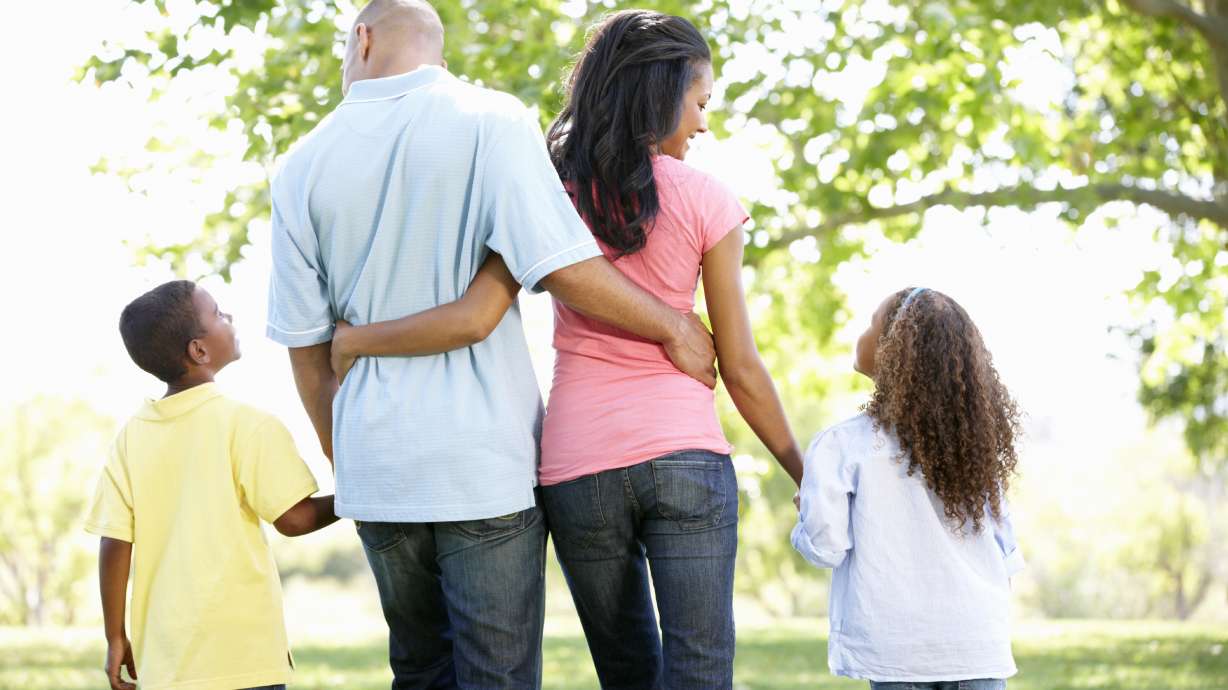Estimated read time: 4-5 minutes
- A new BYU study found parents often have a favorite child.
- Daughters and younger siblings are typically favored, though parents may not realize it.
- Favoritism can impact children's mental health, but family activities can mitigate its effects.
MIDVALE — Karen Martinez has always gotten along with her siblings. They are all easygoing, friendly, supportive and loving. But there is one topic that will turn this loving group of siblings into soldiers fighting against each other in trenches.
The debate over who is their parents' favorite child.
"Basically, there'll be three sides: Me because I'm the oldest; my sister Jessica because she's the baby; and my three brothers Kevin, Michael and Steven because they're the boys," Martinez said. "And we yell and scream and point fingers, and it can get ugly. And my parents just watch it and say the same: 'We love all of you.' I've never believed that."
She doesn't have to believe it. Professor Alex Jensen from the School of Family Life at Brigham Young University led a study asking the question, "Do parents really have a favorite child?" It turns out, they sure do, even if sometimes they don't realize it.
Daughters, the younger siblings and the kids who are just more good-natured than the others tend to be the favorites, Jensen and his colleague found. Interestingly enough, children did not notice the favoritism given to daughters, although the parents did acknowledge it.
And what will not be a surprise to all the older siblings out there, Jensen and his colleague found that parents do find their older children more responsible, but the young ones get the favorable treatment.
But why do siblings question who is the favorite, anyway?
"There's an understood inclination that siblings want their parents' love and respect," Jensen said. "And as humans, we are wired to compare ourselves with each other. We spend so much time with our siblings, we compare ourselves to them."
That goes along with what Martinez has long believed, especially when comparing a parent's behavior toward each child.
"What generally causes our arguments is that my little sister will say something about me being the favorite. And we all know that's not true," she said. "Jessica is the youngest and has always been the favorite. I'm convinced it's hard for parents to get mad at their baby girl. They certainly can get angry with anybody else, though."
Jensen and his colleagues analyzed the data from 19,000 individuals, with information coming from published and unpublished works. From their analysis, they found parents were focused on treating each of their children the same. But treating the children the same means they are not giving special attention to individual needs, causing some children to feel ignored.
The belief that parents have a favorite youngster can also negatively affect children's mental health, especially those who think they are the least favorite child, researchers found. Parents may also notice poor behavior in schools, they found. The concept of a favorite child is not just a fun game of sibling rivalry for all involved.
All is not lost, however. The favorite child concept does not have to be reality. Jensen suggests families spend time together, do activities together, pay attention to how each child is being treated and do not feel guilty there is a favorite — just make some efforts to be together as a family.
Scholars from Purdue University published research in 2020 that focused on mothers and their favorites. Those moms believed that they did not have a favorite, but the children felt she did. Adult children, however, were often incorrect in their assessment of mom. Based on her treatment of the children when they were older, they each received similar treatment, the data showed.
Martinez found this aspect interesting. She wondered if, as adults, she and her siblings just carried the childhood memory of who was the favorite through adulthood. She's looking forward to talking to them about this when she sees them next.
"You know, I'm 45 years old, and I can get just so mad when I think about my mother preferring someone else over me," Martinez said. "I don't know why I get so mad because it makes sense that you can love all your kids but just prefer to spend time with one over the other for whatever reason.
"When it's all said and done, though, I just know Jessica is the favorite. It's nice to know there's data to back me up."








